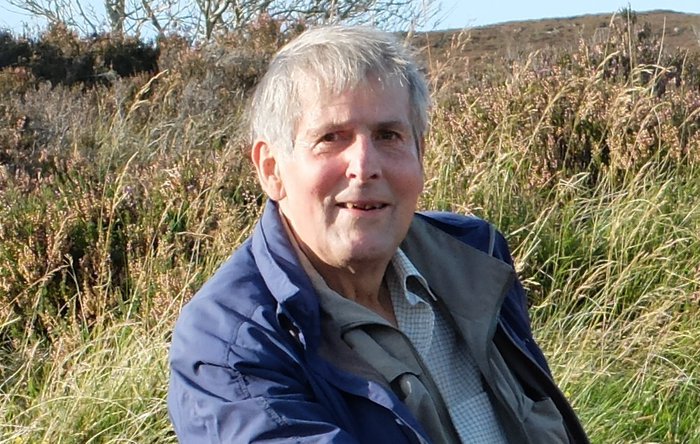My diagnosis with a rare blood cancer
Scotland
Living with a rare disease can present many difficulties. In this blog, Dick shares his experience of living with a rare type of blood cancer called essential thrombocythaemia (ET), and how he works to keep fit, well-informed, and stay positive.

Approaching my 69th birthday, I considered myself to be very fit and active for my age. I was cycling, hill walking, dog walking and managing a half-acre garden. Then one morning I woke up with severe vertigo, difficulty standing and vomiting at the least provocation. A visit to the GP suggested it was an inner-ear infection, but fortunately she decided to take a blood sample just to be on the safe side.
My diagnosis
The blood test revealed that my platelets were at about 1.5 million, putting me at risk of stroke or heart attack, so I was referred to the haematology department at Aberdeen Royal Infirmary.
With additional information from the recently introduced CALR test, they confirmed I had essential thrombocythemia (ET) with the genetic fault known as CALR deletion. ET is one of a group of blood cancers called myeloproliferative neoplasms (MPN). According to the charity, MPN Voice, out of every 100,000 people, only 1.5 to 3 are diagnosed with ET each year, which makes it a very rare disease.
The realisation that this was a blood cancer was obviously worrying.
After a very helpful and generally reassuring discussion with the specialist, he prescribed hydroxycarbamide (HC) at 500mg per day, plus 75mg aspirin. My platelet numbers responded but did not come down as far as was needed, so the dosage of HC was increased to 1,000mg, which produced the desired response. Minor digestive upsets settled down after a few days.
That was in 2013, after which, life returned entirely to normal – with brittle fingernails the only overt side effect, and no discernible effect on my energy levels or other aspects of my everyday life. Indeed, maintaining as good a level of physical fitness as possible is almost certainly helpful. Similarly, eating healthily cannot do any harm.

Living well
Practical tips and real stories to help you with everyday life.
Monitoring with regular blood tests and visits to the hospital reassured me that everything was under control.
More recently, my hospital visits have been reduced to an annual review, now, as a result of the pandemic, successfully conducted by telephone. Although ET is rare, the hospital staff are well clued-up on the subject. It would have made things more worrying if this hadn’t been the case.
As a retired academic, I felt it was important to find out as much as possible about the condition, through reading the medical literature and joining MPN Voice and Blood Cancer UK. Getting additional information from these charities, and subsequently getting involved in critical reading, followed by some editorial work on their patient information, was enormously helpful in understanding my condition, and in discussing things in detail with my hospital specialists.
My rapport with them that this helped me establish has been very helpful throughout.
I’d say that understanding your condition is very valuable in dealing with any problems or concerns. Online forums run by the organisations mentioned are an excellent source of information and support, as were their patient meetings, in pre-pandemic times, where you could hear about recent research and compare patient experiences.
Forums run by patients are also useful, but need to be treated with care around information. This is because information is often posted by non-specialists, sometimes without reference to trustworthy sources. This is particularly important when it comes to non-tested dietary or other interventions.
Unfortunately, in 2017 it transpired that I also had prostate cancer.
Treatment for this could potentially interact with the ET and its treatment, which has complicated matters. But once again, being able to draw on local expertise and the professional literature kept matters under control until 2021. The future is rather less certain.
For me, the keys to life with a blood cancer are keeping physically fit, well-informed and trying to stay positive.
If you're worried about or have questions about blood cancer, the impact of coronavirus, or would like to talk through how you're feeling, please don't hesitate to contact our free and confidential Support Services Team.

Want to read more stories like this?
Join our mailing list to get stories like this delivered directly to your inbox every month.
